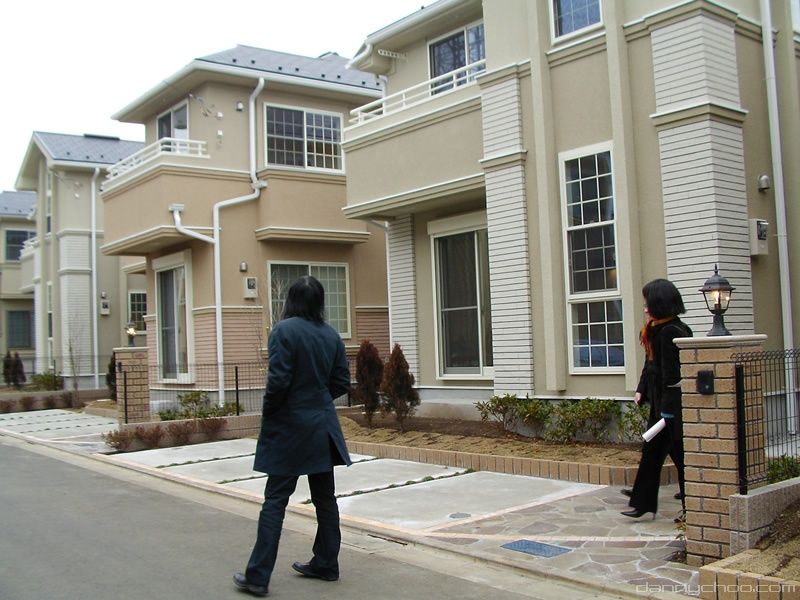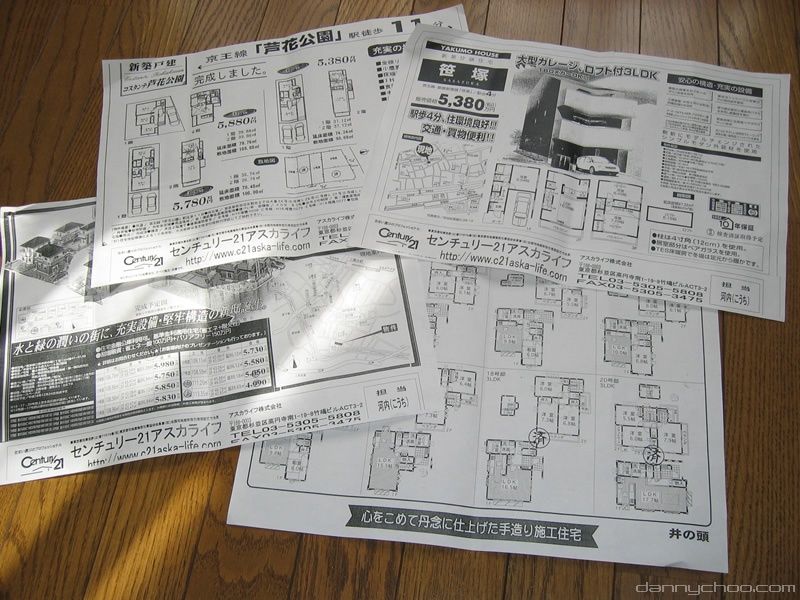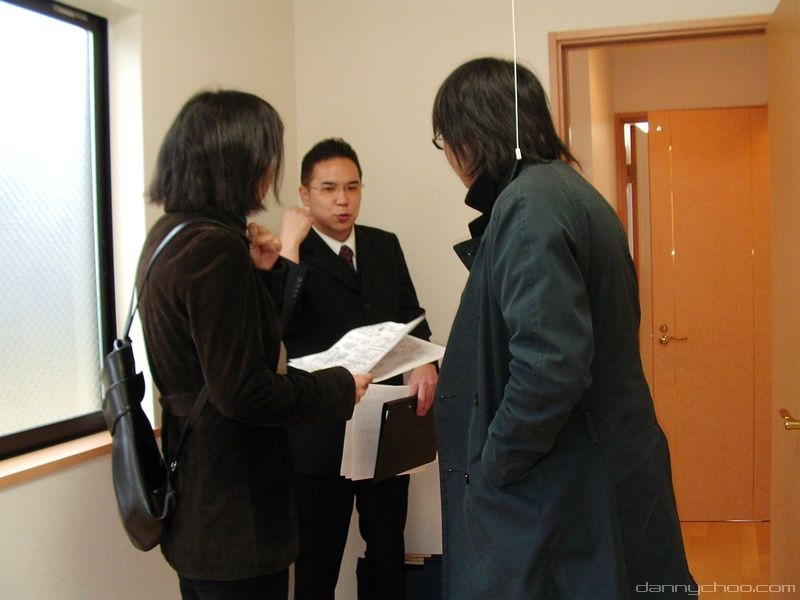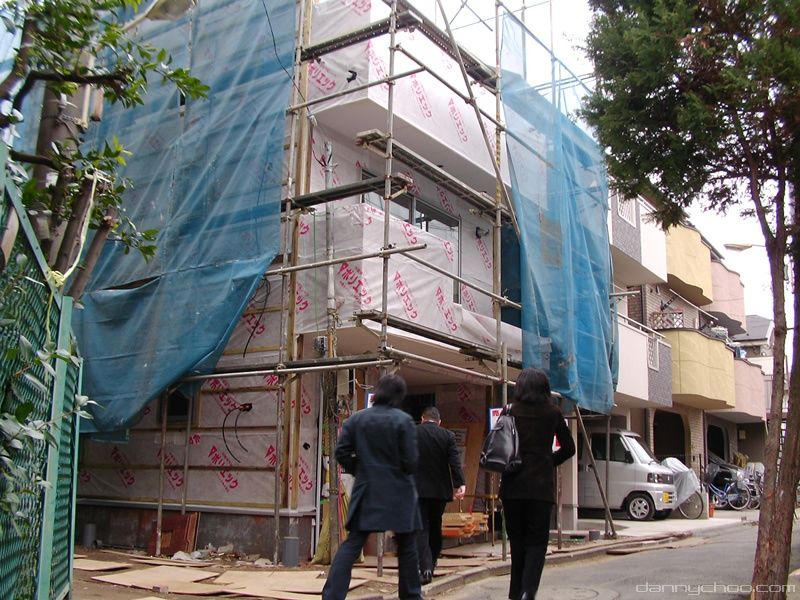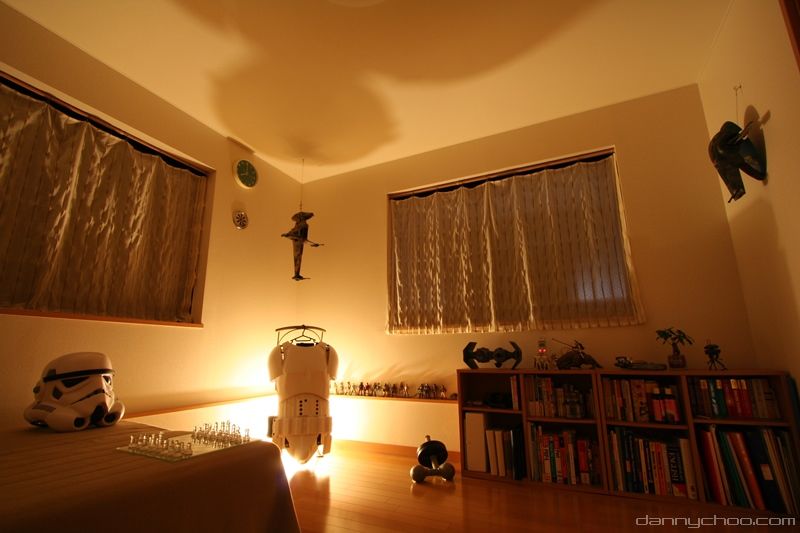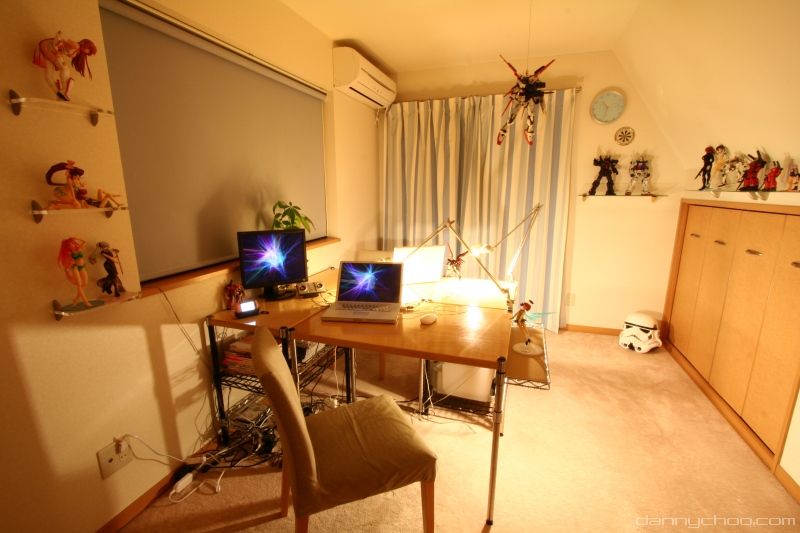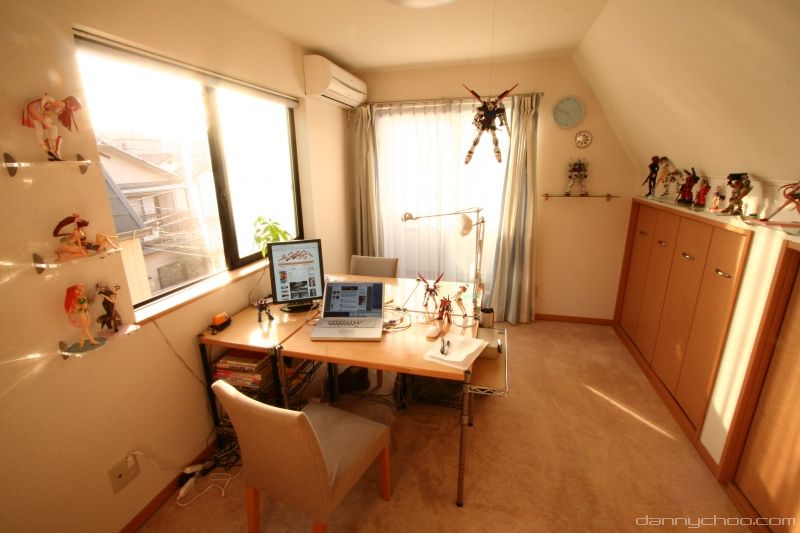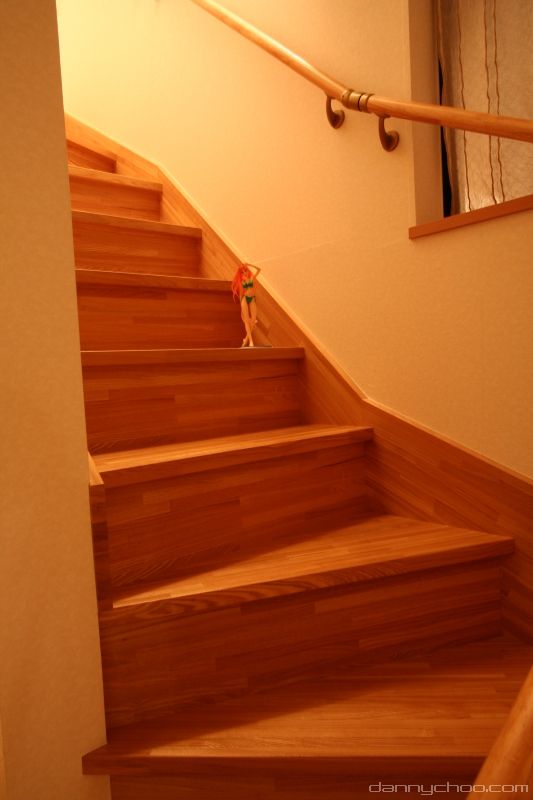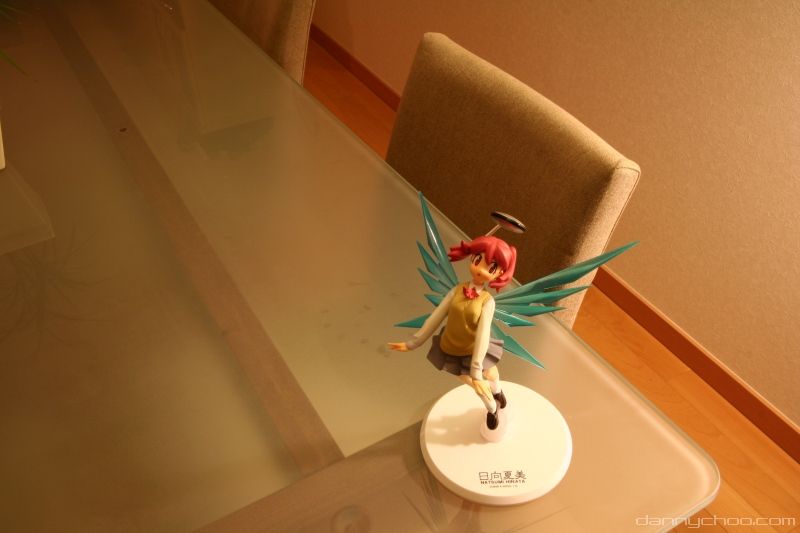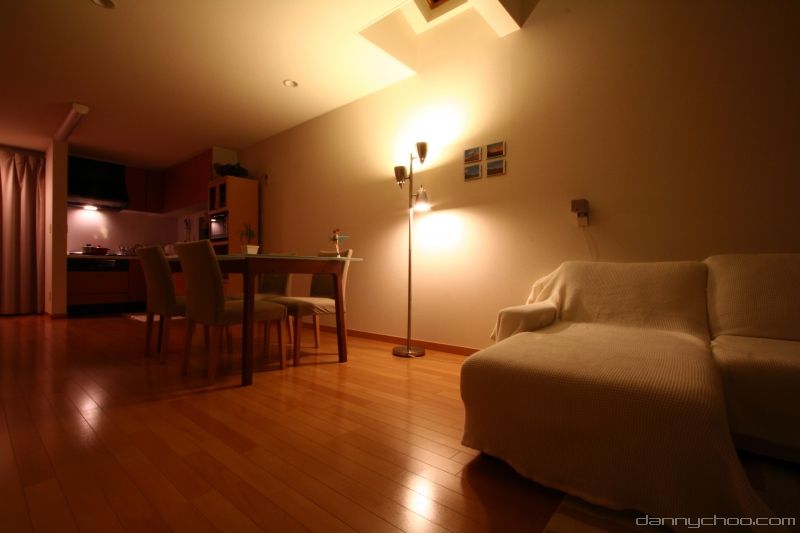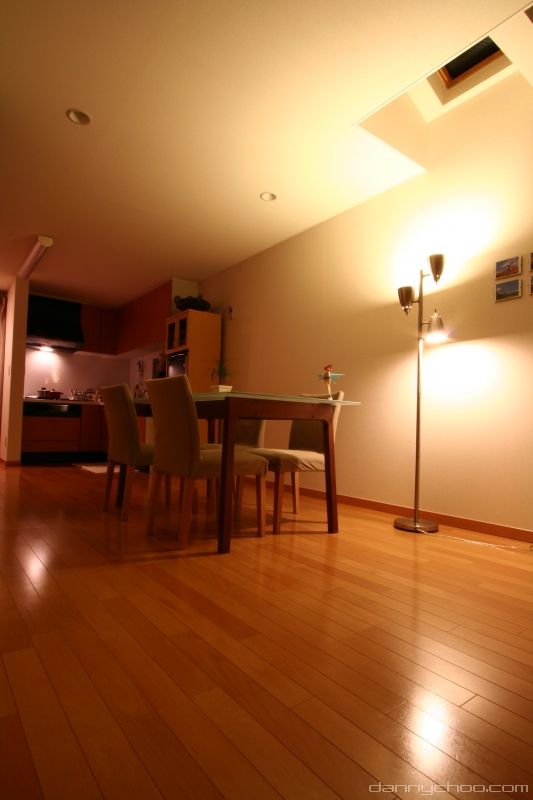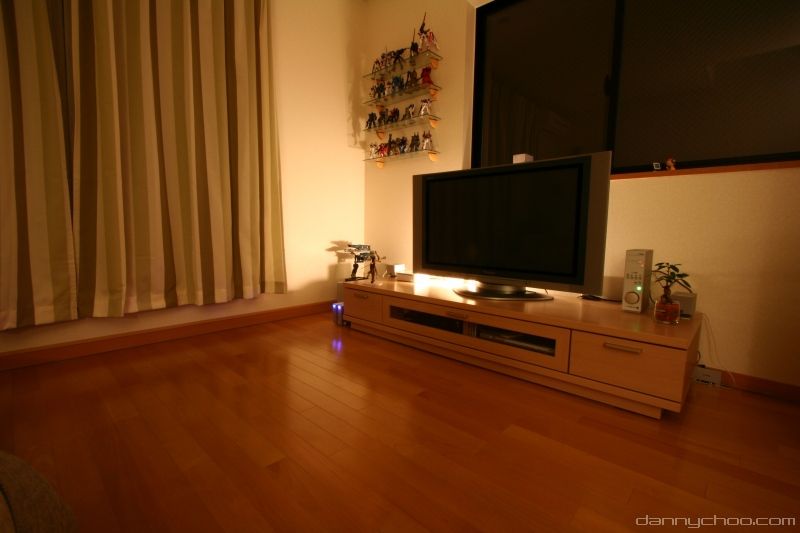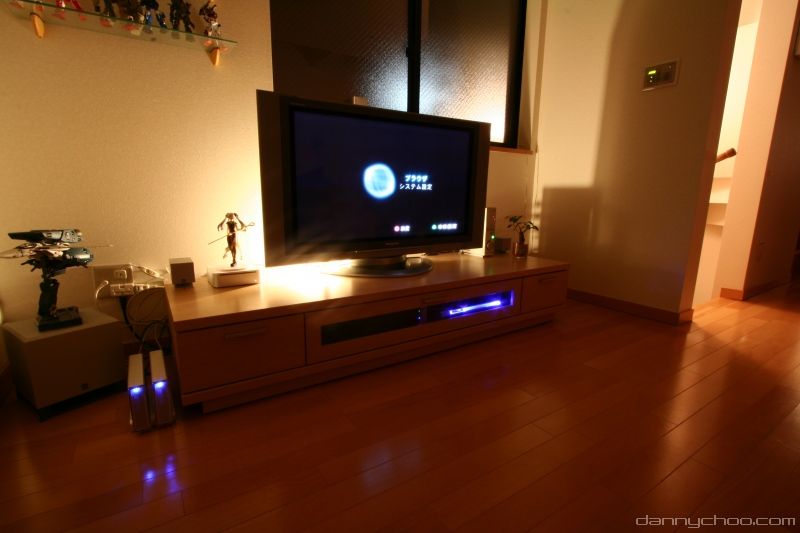Tokyo Property Purchase
I wrote an article on buying a house in Tokyo a while ago and have been getting mail re the subject ever since. Rather can continue to copy and paste my replies, I thought I would write up something with more beef answering many of the frequently asked questions...
After living in Japan for six years, I decided to buy a house because I just got fedup with renting.
Why I decided to buy?
- Apartments for rent are generally of poor quality - the walls are thin and materials used in general are dirt cheap - this is so that the landlord can make as much money profit as possible. The most rent I have payed is 220000 yen per month and the walls in that place were so thin, you could hear the people next door sneeze. This is the main reason why I decided to buy - I just cant stand other people making noise for me to listen too - especially when its people running, jumping and sneezing!
- We tried different types of rented apartments - mansions, apartments and terrace houses - all literally made of paper and noisy as hell.
- The worst experiences are the ones where you are taken to look at a place and after you decide that you like it, the estate agent will call up the landlord in front of you and ask whether they are keen on renting to a foreigner. Some landlords just dont know how to say "no" and say "oh, if they want the place, they have to pay an extra 25000 yen per month for a parking space" and they say this after being told that you dont have a car. Once, I said that I'll take the parking space to see what the reaction of the landlord would be and surprise surprise, they said no in the end. This is one of the most humiliating experiences you will have living in Japan and it sucks.
After going through this experience a few times, what I did was to make the estate agent call the landlord *before* we went to look at the apartments - this will save you a lot of time - but you still get the humiliation as the estate agent calls the landlord in front of you.
Another thing you cant do when renting is make any form of hole in the walls - you cant put up shelves and if you want to put up a satellite dish or install an [optic fiber connection](/post-redirect/en/67), you have to go and beg the landlord.
- The best thing (not) about renting in Japan is that you have to pay something called "key money" - in Japanese this is called "Reikin" (礼金(れいきん)) which means "gratuity money". This sum of money which can cost anything from twice to three times the monthly rent, is paid to the landlord as a form of gratuity thanking the bastard. And why should *I* pay the landlord - should it not be them paying me to stay in their place? GRRRRRR! Did I forget to mention that you dont get your key money back?
Oh, I nearly forgot to mention that you have to pay the parasite estate agent a months rent for introducing you to the apartment - in Japan, you have to thank the estate agent AND the landlord!
Now to add insult to injury, you have to pay another one months rent in advance too! so when I moved into that lousy apartment where I was paying 220000 yen per month, I had to pay 1540000 yen upfront!
Now to add insult to injury, you have to pay another one months rent in advance too! so when I moved into that lousy apartment where I was paying 220000 yen per month, I had to pay 1540000 yen upfront!
Why not to buy?
- The average life span of a house in Japan is 25 years which is just one of the reasons why folks dont make these sort of purchases as an investment. Generally speaking, when people buy property in Japan, they usually plan to live there until their time is up.
- The price of land in Tokyo varies and you could find yourself paying 1417000 yen per square meter in Chiyoda-ku or as little as 291000 yen in Edogawa-ku (Prices as of 2004. stats from Tokyo Metropolitan Government). Given the high price of land, its no wonder that most folks in Tokyo prefer to rent - most dont even think about buying a house. If you want a decent amount of land in decent area with good commuting routes, you are looking to dish out at least 45000000 yen for the land alone.
- A "mansion" is a term used in Japan to refer to an apartment in a cement building. You can pick up a room in a mansion for cheap and I've seen prices starting at 15000000 yen. But be knowist that in general the value of the mansions drop by 10000000 yen the day you receive the keys! I do not recommend buying a mansion at all - once you have made the purchase thats it - the end. You cant do anything drastic in terms of layout (if you have your own land you can just knock down the house and rebuild) and you have to join the mansion committee where all owners of each apartment in the mansion have to get together to make decisions on common areas and crap. If you end up with a noisy neighbor then you are really finished.
- I didnt buy for an investment and just wanted a place of our own. The price of land in our area has been increasing steadily since we moved in though which is nice ^^. The current plan is to move out within 5 years to a bigger place - need more space for all the toys n figures ^^. My goal is to get to my destination within 5 years form now meaning that we would be able to afford a bigger place. Nothing wrong with this house but we kinda want more space...
Where to buy?
- This really depends on what you are looking for - somewhere close to work, somewhere near a park, somewhere with good transportation connections, somewhere near a Gundam store, somewhere cheap etc. Lets say you have a budget of about 70000000 yen and you are looking for a new decent sized house and dont mind traveling up to 45 mins to work (1 hour is the acceptable norm ) - I would suggest the west side of Tokyo. During the time I have stayed in Japan, I have always lived in the west and find that it is generally cleaner and safer on this side. Its also easy to get about as its well connected. I did go looking in the east as the price of land is way cheaper but some areas in the east can be quite rough - a bit like the east end of London. If you know anything about Hackney you will know what I am talking about - its where I grew up and is in the book "Crap Towns: The 50 worst places to live in the UK" !
- Areas I personally recommend are Setagaya-ku and Meguro-ku - nice areas with good commutation. Price of land in these areas average from 488000 yen to 600000 yen per square meter.
Where to look?
- These are an example of the types of property on sale and you can find more sites like this by doing a search.
- You can also get yourself along to your local convenience store to find magazines filled with information on new properties.
- Alternatively, you can just get yourself along to an estate agent and tell them what you are looking for. If you arrived at a decent estate agent, they will have access to a national database called REINS (Real Estate Information Network System). Most properties for sale are registered in REINS and it is likely to have what you are looking for. The only people who can access REINS are evil estate agents so most people end up having to pay the estate agent fees - in our case it was bloody 3000000 yen.
What to buy?
- Well I've mentioned a bit about buying a mansion - dont do it! So you basically have a few choices....
- Buy a new house with some land attached. This is the quickest option if you are in a rush and want to start off with something new. This type of purchase is called Tateuri (建て売り(たてうり)) where you purchase a bit of land that comes with a new house built on top. The seller obviously wants to make as much of a profit as possible so you will find that some of the materials used for a Tateuri house can be a bit cheap. The seller will add useless features like floor heating (Yuka Danbou (床暖房(ゆかだんぼう)) - just like what we have in our house. My fart can warm up the room to a temperature higher than the the lousy floor heating.
- Buy a second hand house. When you are buying one of these - you are essentially paying for the land and getting the house for free as it will generally be worth next to nothing. Do your research to make sure that you are paying just for the land and a few yen on top for the house - the previous link to the Tokyo Metropolitan Government page is a good place to start. A few people I know buy second hand houses, live there for a while then knock down the old place and build a made to order house - Chumon Jutaku (see below).
- Buy some land then build a house to order. This is the best option if you are not rushed for time and is called Uri Tate (売り建て(うりたて)). What you do is to buy a bit of land then work with an architect to build your house to your needs. Chumon Jutaku (注文住宅(ちゅうもんじゅうたく)) is the word to describe a built to order house. The only "drawback" is that you are already repaying the loan while you wait for your house to be built - so every month, you will be paying rent at the place you are staying and the monthly loan installment.
Building regulations
There are rules and regulations restricting you to the type of design you want. Here are some of them...
- Kitagawa Shasen (北側斜線(きたがわしゃせん)) - is a restriction put in place to prevent buildings blocking out the sun for smaller dwellings. This means that depending on the location of your house - you may be imposed to have a diagonal roof. This is one of the reasons why you may have noticed that many buildings in Japan look like they have had a diagonal slice taken out of them
- Kenpei Ritsu (建ぺい率(けんぺいりつ)) - is a restriction to prevent one from using up 100% of their land to build something. Without this restriction, given the lack of space in Tokyo, folks would use up 100% of their land meaning that there wouldnt be any open space! (no spaces between houses). We actually own half of the road in front of our house - without this restriction in place, if I wanted to be a right wanker, I could use up my bit of the road so no traffic could pass. The Kenpei Ritsu for our property is 60% meaning that I can only use up 60 square meters of our 100 square meters to build something. Kenpei Ritsu varies by location - you learn this value when you are looking at land to purchase.
- Youseki Ritsu (容積率(ようせきりつ)) - is a restriction to prevent you from building the tallest building in Tokyo or a Gundam shaped house. The Youseki Ritsu for our land is 200% meaning that we can build something that amounts to 120 square meters (we can only use 60% of our land because of the Kenpei Ritsu - amounting to 60 square meters. 60 X 200% = 120 square meters). We have 3 floors that roughly add up to 40 square meters each but we could build a 4 story house but the total floor space has to still amount to 120 square meters and given the Kitagawa Shasen (diagonal roof restriction), we'd end up with a pretty strange shaped impractical house.
- Zettai Takasa no Seigen(絶対高さの制限(ぜったいたかさのせいげん)) - is a restriction in place to prevent one from building anything over 10 or 12 meters high.
- Nichiei Kisei (日影規制(にちえいきせい)) - is a restriction to ensure that the surrounding buildings get a certain number of sunlight hours. For example, A building within X meters has to receive X number of sunlight hours per day during the winter season. This restriction also affects the height and shape of the sort of house you can build.
How big/small?
- I've mentioned it a few times but the land of price is on the expensive side - 60000000 yen (for example ;-) for 60 square meters of land is not exactly a bargain. The building restrictions could mean that you end up with a property smaller than you initially hoped for. If you are willing to travel further out of Tokyo - you could obviously get a bigger place compared to Tokyo.
Loan and stuff
- Applying for a loan and the zillion documents involved in the whole house buying process is just overwhelming. If you are a foreigner in Japan - on a working permit and don't have a Japanese spouse, then you will be glad to know that you can get a mortgage with Mitsubishi Tokyo UFJ Bank (MUFJ). At the time, Mitsubishi Bank was the only bank I knew of that loaned to foreigners in Japan who didnt have permanent residency. Mitsubishi UFJ do have some hefty conditions though - you can see all the documents you need to apply for a loan at MUFJ's site which include yearly income statement, seal registration certificate (this sort of seal), passport, health card etc. And you also need docs regarding the property you want to buy including certificate of purchase, schematic layout of property and a ton of other crap.
- Our estate agent offered to apply for the loan for us but we decided to apply ourselves - always better to try to go through these type of experiences yourself - no matter how painful. It doesn't cost extra to have the estate agent apply for you - they just probably get a kick back for introducing your application to the bank.
Other hints and stuff
- You can knock off a few million yen from the original price of the property and a certain amount from the estate agent fee. Make sure you don't forget to do this!
- If you are going for a new house, the chances are that the net windows (allows you to open the windows without letting in pesky insects) are not included. Make sure these are included in the price or you will be charged extra for them - they are not cheap either. Our net windows cost a poxy 160000 yen. Laundry pole racks are not included either (they should be) so make sure they include these too before you decide to buy
- If possible, talk to some of the people living nearby to get a sense of what the area is like - are their any Bousou Zoku (暴走族(ぼうそうぞく)) - folks who go around in packs on motorbikes and generally like to make as much noise as possible at 4AM (many in Yokohama).
- check up to see if the house is in an area where you can get decent internet connection. Most central places in Tokyo can be set up with an optic fiber connection by NTT (the phone company) - some places in the sticks could only be ADSL or cable - make sure your place will get a decent speed.
OK, enough talk - lets look at some pics.
This is us taking a look at something that the estate agent thought fitted our needs. What usually happens is that s/he will find about 6 - 10 places that fit your needs/budget and then try to convince you that the graveyard in front of the property is a sign of good luck.
This is us taking a look at something that the estate agent thought fitted our needs. What usually happens is that s/he will find about 6 - 10 places that fit your needs/budget and then try to convince you that the graveyard in front of the property is a sign of good luck.
These are the floor plans that the estate agent will fax you. If you dont have a fax handy, insist that they mail them to you. One of the things I still find quite surprising in Japan is how many industries still rely on faxes.
The estate agent is your friend for the next few weeks and you will find yourself calling him everyday about the 101 pages of documentation that you need to sign and write your address on.
After the ordeal is over, you can put the agent on your hate list.
After the ordeal is over, you can put the agent on your hate list.
Some of the places that you may be taken to look at are unfinished places like this one. I really dont recommend deciding on something when its looking like this and the chances are that many others wont either. If you like the area, wait a bit more when the building is ready to enter and go back for another visit.
Here are some pics of our place a year on after moving in.
Starting off with the spare room which is also the stormtrooper-armor-modding room and guest room.
Starting off with the spare room which is also the stormtrooper-armor-modding room and guest room.
Third floor by night. Added a ton of shelves for the toys n figures recently. And yes - thats Strike dangling from the ceiling.
Third floor by day. I just love a sunny Saturday afternoon - there's nothing that can beat it.
In most cases, the steps are going to be really small! Most stair cases in Japan are not wide enough to fit stuff like sofas or refrigerators which is why they are brought into your house through the windows.
Natsumi looking cute on the dining table.
Dining area of our house. Much anime watching goes on in this room.
More dining. The kitchen area in the back comes with whats known as a "system kitchen" which is basically "kitchen appliances which fit together nicely." Our one comes with a dish washer which is 3 times smaller than the one we had in Seattle. Sometimes it can be quicker to wash by hand than spending time cramming everything into it!
Entertainment area. Need to make space for an XBox-360 soon.
Our plasma has survived two international moves and has been alive for about 5 years now - who said that the plasma life span is short?
More life in Japan in the weekly A Week in Tokyo series.
More life in Japan in the weekly A Week in Tokyo series.
